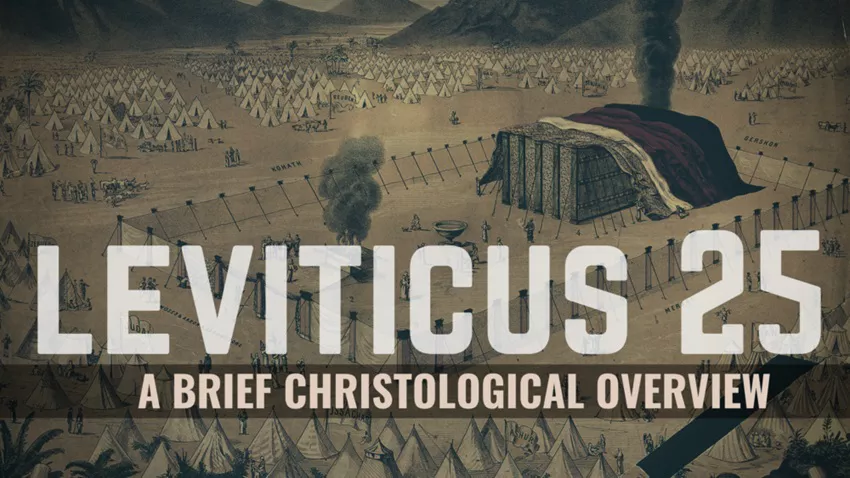Leviticus Chapter 25 Summary
Leviticus 25 introduces the concept of the Year of Jubilee, a time of restoration and freedom for the Israelites. Every fiftieth year, after seven cycles of seven years, the land is to lie fallow, and all property that had been sold due to debt is returned to its original owner. This practice ensures that wealth is not concentrated in the hands of a few and that the people maintain their inheritance. Additionally, the chapter includes laws about the Sabbath year, when the land is to rest every seventh year, and guidelines for treating fellow Israelites with fairness and compassion. The chapter emphasizes God‘s sovereignty over the land and the importance of justice, compassion, and economic equality within the community.
Bible Leviticus Chapter 25
Welcome to read Leviticus Chapter 25. Here is the list of Exodus Chapter 25:
What Does Leviticus Chapter 25 Teach Us?
Leviticus 25 introduces the concept of the Year of Jubilee and provides detailed regulations for the Sabbath year and the redemption of property. This chapter emphasizes God’s sovereignty, His care for His people, and the importance of justice and mercy in society. It is a chapter that highlights God’s provision for rest, restoration, and redemption. Below are the key teachings from Leviticus 25:
1. The Sabbath Year
The chapter begins by outlining the law of the Sabbath year, which occurs every seventh year. In this year, the land is to rest, meaning no planting or harvesting is allowed. This is a form of environmental and economic reset, as the people are commanded to trust God to provide for them during the year when they do not work the land. The Sabbath year is a reminder that the earth ultimately belongs to God, and humanity’s stewardship of it is temporary. For Christians, it teaches the value of trusting God in times of rest and believing that He will provide for our needs, even when we take time to rest or pause from our regular work (Leviticus 25:1-7).
2. The Year of Jubilee
The most significant part of Leviticus 25 is the Year of Jubilee, which occurs every fifty years. In this year, all land that had been sold or transferred is to be returned to its original owner, and Hebrew slaves are to be set free. The Jubilee is a powerful symbol of restoration and redemption, ensuring that no one becomes permanently impoverished and that the wealth of the community is not concentrated in the hands of a few. It reflects God’s desire for justice, fairness, and the preservation of the dignity of every person. For Christians, the Year of Jubilee points to the ultimate redemption found in Jesus Christ, who came to set the captives free and restore all things (Leviticus 25:8-17).
3. The Redemption of Property
Leviticus 25 also contains laws about the redemption of property. If someone falls into poverty and is forced to sell their land, a relative, called a “kinsman-redeemer,” can purchase the land back to restore it to its original family. This practice is a reminder of God’s desire for justice and restoration, ensuring that people’s livelihoods and inheritances are not permanently lost. The role of the kinsman-redeemer is a key biblical concept, ultimately fulfilled in Jesus, who redeems us from sin and restores our relationship with God (Leviticus 25:23-28).
4. The Treatment of Servants
Another significant teaching in this chapter is the treatment of Hebrew servants. If a person sold themselves into servitude due to poverty, they were to be set free in the Year of Jubilee, and no one was to treat them harshly. The release of these servants in the Jubilee year symbolizes God’s heart for freedom and restoration, reminding the people that they are ultimately servants of God, not of one another. This teaches us that no one should be bound indefinitely in slavery or oppression, and that mercy, dignity, and justice must govern how we treat others (Leviticus 25:39-43).
5. God’s Provision and the Call to Trust
The chapter teaches the importance of trusting in God’s provision. As the land rests in the Sabbath year and in the Year of Jubilee, the people are reminded that God provides for them, not only in their work but also during seasons when they must rely on His provision. This was a call to faith, as the people were instructed to trust that God would bless the sixth year with enough produce to last through the seventh and into the next planting season (Leviticus 25:20-22). For Christians, this serves as a reminder to rely on God’s provision in all circumstances, trusting that He will meet our needs when we follow His commands.
6. The Kingdom of God and Social Justice
The principles laid out in Leviticus 25 speak to the broader biblical themes of justice, mercy, and the Kingdom of God. By ensuring that land is returned, debts are forgiven, and people are set free, the Year of Jubilee promotes a society where people live in freedom, equality, and communal responsibility. This is a reflection of God’s Kingdom, where there is no oppression, and all people are treated with dignity. It teaches us that God desires a society where everyone’s needs are met and no one is excluded or left behind. It also points to the future hope of God’s ultimate restoration of all things in Christ.
Related topics:


